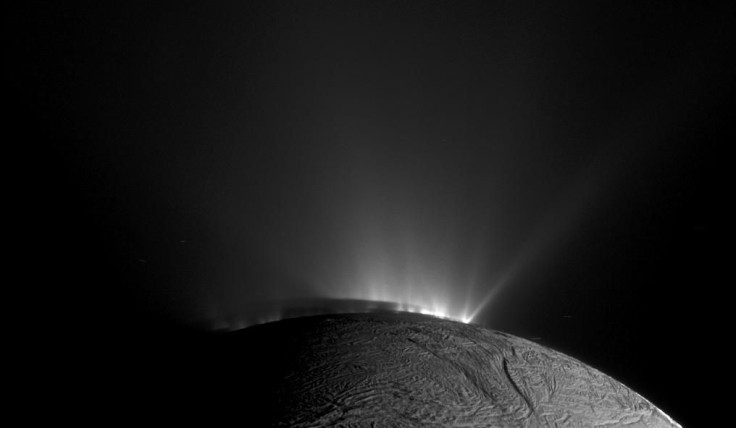NASA Alien Shocker: Was Life Found On Saturn's Moon?

U.S. space agency NASA is said to have made a major breakthrough in its search for life outside our planet when it discovered “organic compounds” on one of the moons of Planet Saturn.
According to a report, NASA was able to detect “new kinds of organic compounds” from the hydrothermal plumes of Saturn moon Enceladus’ core. Enceladus is one of Saturn’s 62 satellites. In a statement, the U.S. space agency said that it was able to detect amino acids, one of the main ingredients of life back here on Earth, via data gathered by the space probe Cassini. Cassini was able to circle the ringed planet for 12 years before ending its mission back in 2017.
Based on the info, experts from NASA agree that some of the elements spewed by Enceladus’ hydrothermal vents include nitrogen and oxygen-bearing compounds. “On Earth, similar compounds are part of chemical reactions that produce amino acids, the building blocks of life. Hydrothermal vents on the ocean floor provide the energy that fuels the reactions. Scientists believe Enceladus’ hydrothermal vents may operate in the same way, supplying energy that leads to the production of amino acids,” NASA said.
Enceladus is believed to be covered by a shell-like armor with a thickness that spans over 25 kilometers. However, some of the vents found on the south pole of the moon measures only 1-kilometer thick. Because of this, the vents are believed to spew out icy plumes.
But scientists also said that Enceladus’ core and geological makeup allow for the subsurface water of the moon to be warm enough to remain in liquid form. Water is one of the main components of life to survive.
“If the conditions are right, these molecules coming from the deep ocean of Enceladus could be on the same reaction pathway as we see here on Earth. We don’t yet know if amino acids are needed for life beyond Earth, but finding the molecules that form amino acids is an important piece of the puzzle,” Nozair Khawaja, one of the research leads from the Free University of Berlin, said about the new discovery.
“Here we are finding smaller and soluble organic building blocks — potential precursors for amino acids and other ingredients required for life on Earth,” Jon Hillier, co-author of the study, added.
The discovery is a breakthrough study in our constant search for life outside the planet because if there can be further proof of the elements existing on Enceladus, then it means that the moon has “reactive building blocks in abundance” and could actually mean that the moon is a good option where humans can start a colony.
Aside from Enceladus, the moon Titan is also believed to hold some key elements showing that there’s possible life thriving on Saturn’s satellite. Back in 2017, Cassini was able to detect carbon chain anions, another main ingredient of life on Earth, on Titan.
© Copyright IBTimes 2024. All rights reserved.





















